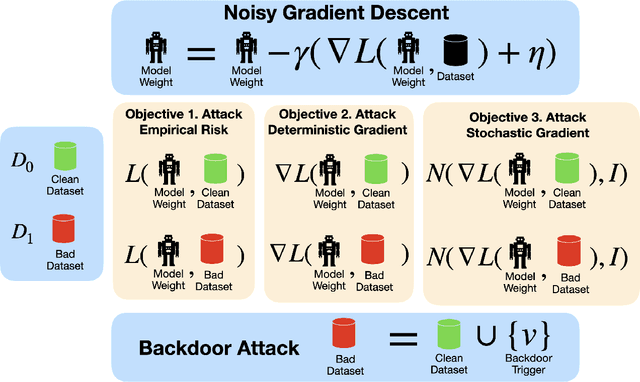BadGD: A unified data-centric framework to identify gradient descent vulnerabilities
Paper and Code
May 24, 2024

We present BadGD, a unified theoretical framework that exposes the vulnerabilities of gradient descent algorithms through strategic backdoor attacks. Backdoor attacks involve embedding malicious triggers into a training dataset to disrupt the model's learning process. Our framework introduces three novel constructs: Max RiskWarp Trigger, Max GradWarp Trigger, and Max GradDistWarp Trigger, each designed to exploit specific aspects of gradient descent by distorting empirical risk, deterministic gradients, and stochastic gradients respectively. We rigorously define clean and backdoored datasets and provide mathematical formulations for assessing the distortions caused by these malicious backdoor triggers. By measuring the impact of these triggers on the model training procedure, our framework bridges existing empirical findings with theoretical insights, demonstrating how a malicious party can exploit gradient descent hyperparameters to maximize attack effectiveness. In particular, we show that these exploitations can significantly alter the loss landscape and gradient calculations, leading to compromised model integrity and performance. This research underscores the severe threats posed by such data-centric attacks and highlights the urgent need for robust defenses in machine learning. BadGD sets a new standard for understanding and mitigating adversarial manipulations, ensuring the reliability and security of AI systems.
 Add to Chrome
Add to Chrome Add to Firefox
Add to Firefox Add to Edge
Add to Edge